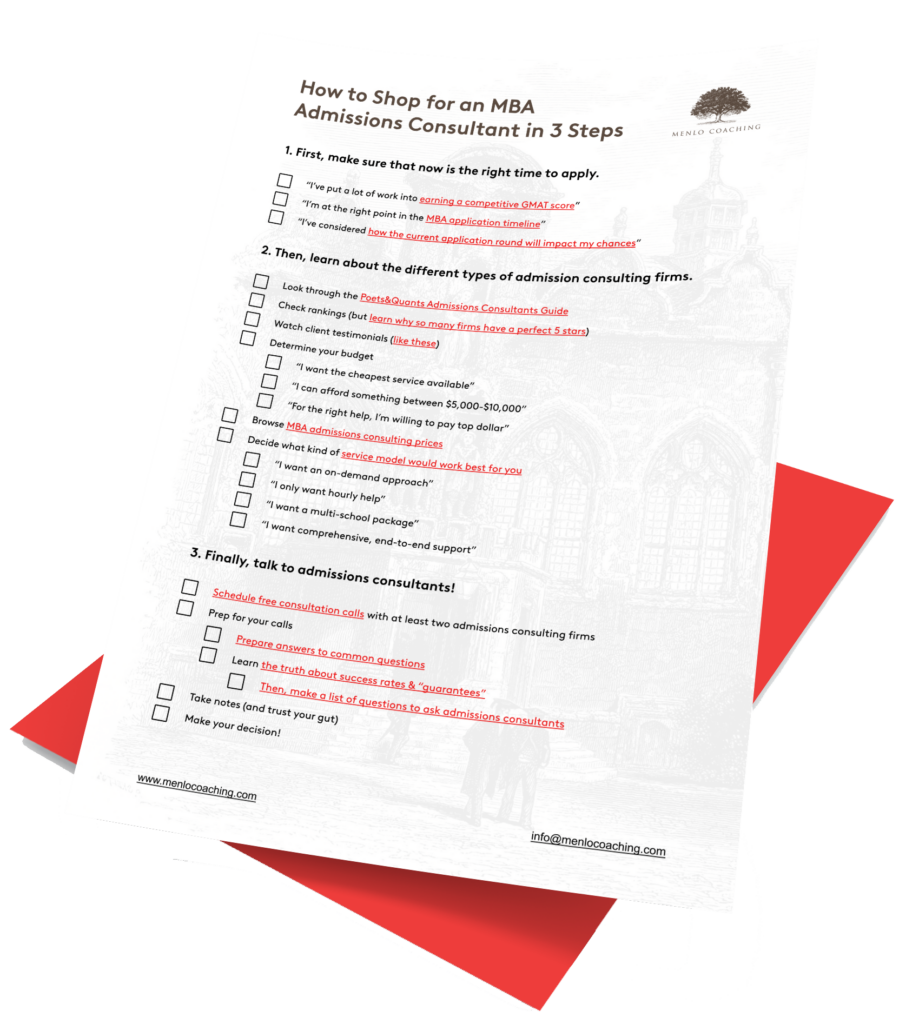MBA recruiting is a huge draw for candidates hoping to land a job in investment banking, big tech, strategy consulting, and more. Whether you’re an incoming MBA candidate or MBA grad, recruiting can be a stressful, sometimes overwhelming process. The differences between on-campus and off-campus recruiting might seem straightforward, but they’re important to consider when choosing which schools and which companies to pursue.
This article will discuss the fundamentals of the MBA recruiting process, how MBA candidates can pursue job recruiting, and the recruiting partners that target top business schools.
What Is On-Campus Recruiting?
On-campus recruiting is when top hiring companies come to a specific MBA program, searching for talented students to join their companies. These companies target MBA graduates for the academic and professional experience they acquired in business school.
Hiring companies will draw a large number of applicants and conduct a lot of interviews. Companies that invest in recruiting from top MBA programs in the country will select only the most qualified students, meaning on-campus recruiting is not necessarily easier than off-campus. On-campus recruiting simply means that the steps for employment are laid out for you in a clear, structured way.
The career services office works in tandem with recruiting companies, ensuring that they hire MBA grads that fulfill their needs. Services that improve your professional development skills, like resume building or interview preparation, are useful tools to increase your chances of recruitment.
Who Hires Directly from MBA Programs?
Some companies that recruit directly from business schools include large strategy consulting firms like McKinsey and BCG, investment banks, large tech firms, and nonprofits.
Smaller firms also recruit from MBA programs; it depends more on the company’s location and the extent to which they employ MBA graduates rather than on industry.
What Is Off-Campus Recruiting?
The off-campus recruiting process includes all companies that do not specifically hire MBAs. It can also mean they seek talent at different MBA programs than your own.
Before applying to MBA hiring companies, it’s important to distinguish whether they have an off-campus recruitment model or just don’t specifically seek students from your MBA program. In the latter case, getting a job offer will be more challenging (but not impossible).
Private equity, small firms, and startups do off-campus recruiting, but you will have to self-direct your efforts if you’re interested in working for those companies.
It’s still important to mobilize your school’s professional resources, especially networking. Using online tools like LinkedIn and networking with companies could persuade them to create an MBA position for you.
What Are Some Recruiting Tips for Incoming Students?
Diligence is essential when finding companies you want to apply for. Be careful when looking through employment reports—just because a company’s employment report states that they have hired from a particular school, that doesn’t mean that they organize on-campus recruiting. Make sure to note if the company recruits on-campus, off-campus, or using a hybrid model.
Check to see what schools the company is interested in. Again, if your school is not on their list, it will be harder for you to get hired by them.
Reach out to alumni and use LinkedIn as a research tool to see who works at the companies you are interested in.
Consider whether the recruiting process used by the employers you are interested in is on-campus or off-campus, so you can articulate your career goals in a sophisticated and knowledgeable way.
Make sure to emphasize that you know the difference between on-campus and off-campus recruiting in your MBA application essay or interview. Demonstrate that you know the divide, and talk about how you plan to achieve your career goals through this framework. This shows the admissions committee and recruitment officers that you have thoughtfully considered your options.
Finally, consider whether the employer you are targeting uses on- or off-campus recruiting. This way, you can approach them about their hiring processes and your employment prospects in a sophisticated and knowledgeable way.
Conclusion & Next Steps
There are numerous differences between on-campus and off-campus recruiting, mainly the structure of the process. On-campus recruiting is coordinated by your career office and larger companies. On the other hand, off-campus recruiting is largely achieved of your own volition, but it gives you an opportunity to stand out to the company, whether that’s a startup, or small firm, or even a larger organization.
Overall, make sure to utilize your school’s alumni network, its professional development resources, and LinkedIn to find the best jobs for you. Make the most of what your school has to offer, but don’t be afraid to search off campus for companies that aren’t recruiting directly through your school.
Make sure to check out Menlo Coaching’s tips on how to write your admissions essays and find a job postgrad!
Maximize your recruitment opportunities with personalized advice from our dedicated MBA consulting team on navigating on- and off-campus recruitment.


